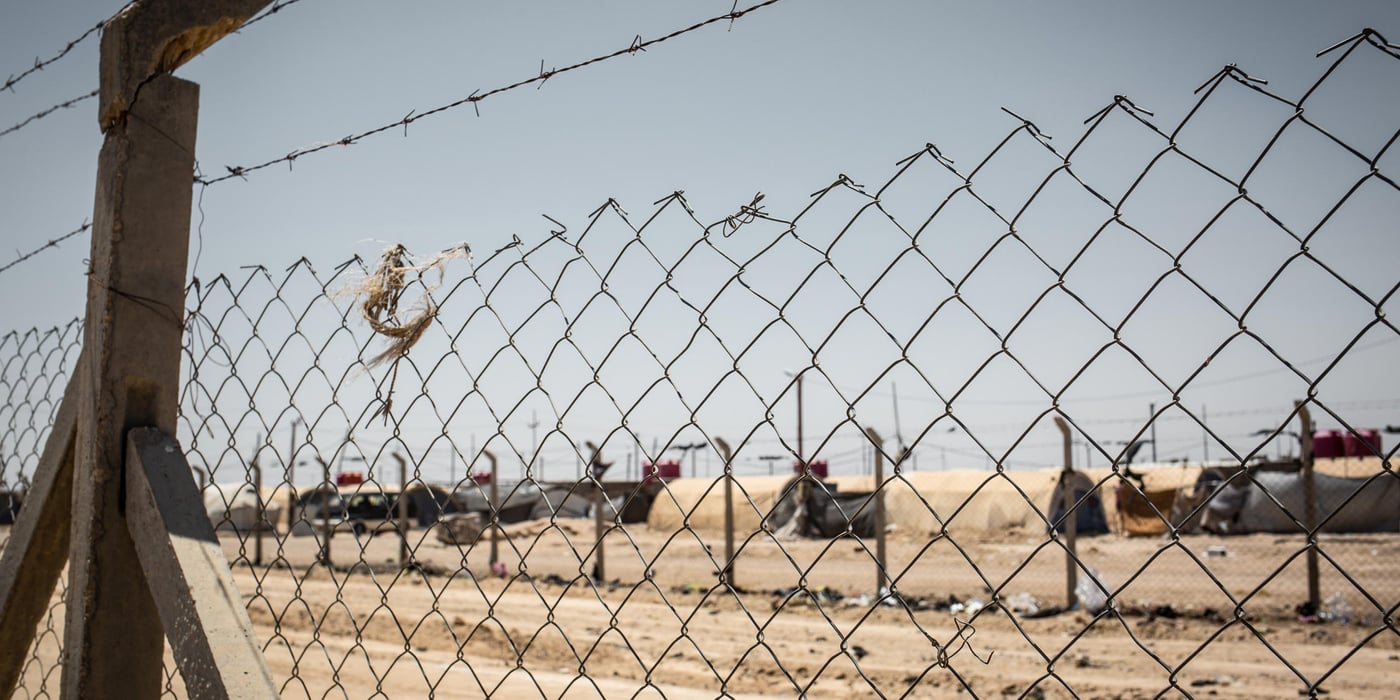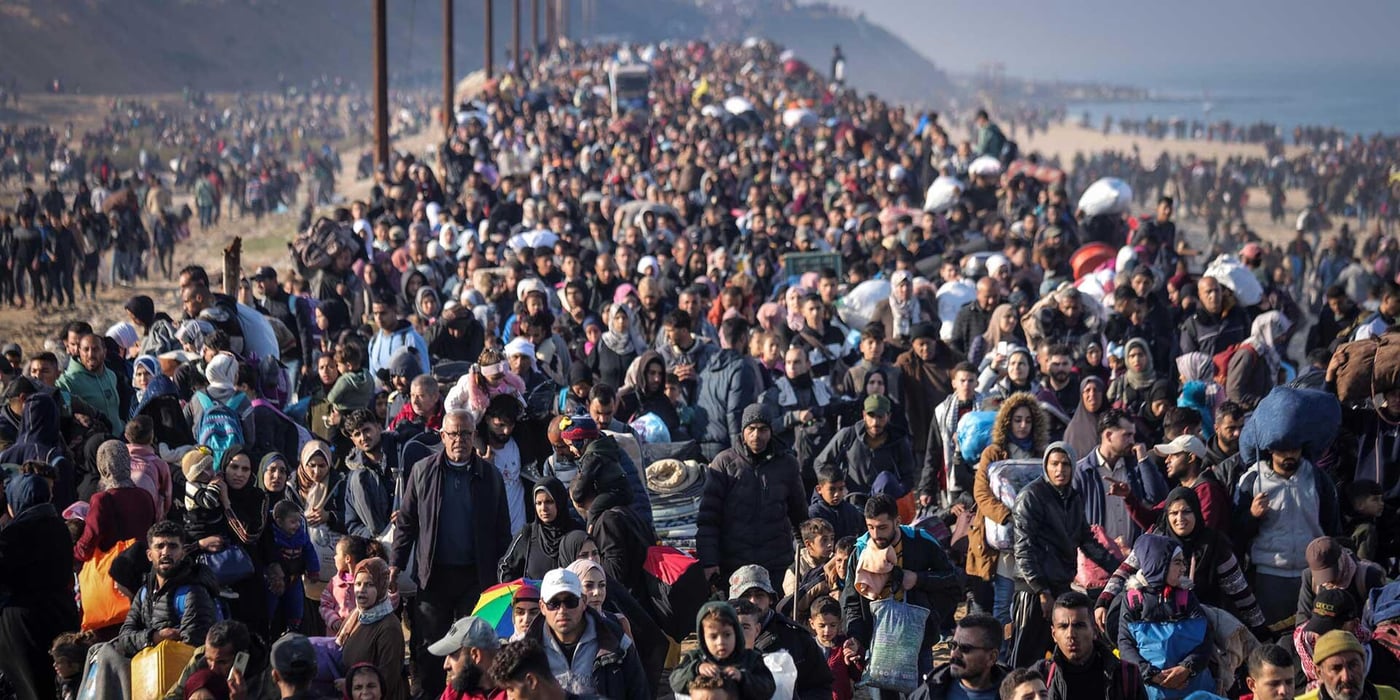
To ensure that aid is not diverted or subject to any manipulation, we have developed rigorous checks and balances and are committed to upholding domestic and international laws and donor agreements that regulate our operations.
Yet humanitarian organisations and our staff are repeatedly facing stark and difficult choices as a result of counter-terrorism rules, legislation and sanctions. Increasing risk aversion by governments, donors and banks means that those most impacted by humanitarian crises risk losing access to aid by virtue of the same circumstances that have left them vulnerable. Humanitarian workers are at risk of civil and criminal charges simply for doing our jobs.
Humanity, impartiality and independence are critical operational principles that allow humanitarian organisations to gain and maintain the trust of all parties to a conflict, as well as the affected local communities. Counter-terrorism measures that do not allow principled humanitarian action can threaten humanitarian access and restrict principled engagement with non-state armed groups.
In doing so, these measures increase delivery costs, affect program quality and efficiency, and risk staff security by creating perceptions that humanitarian organizations are not impartial, which in turn affects the lives of those in need if we can no longer reach them. For example, when operations to particular areas are abruptly halted or certain types of assistance are suddenly suspended on the basis of which party controls an area, the safety and security of our staff on the ground are compromised if their actions are seen as politically-motivated or partisan.
We therefore welcome efforts to re-examine and address the negative impacts of counter-terrorism measures on principled humanitarian action, including efforts within the UN Security Council to provide for humanitarian safeguards in Resolutions 2462 (on terrorism financing) and 2482 (on the relationship between terrorism and organised crime). We also welcome the improving dialogue between Member States, UN agencies and humanitarian organisations on these issues, and encourage more States to participate in efforts to ensure counter-terrorism measures comply with international humanitarian and human rights obligations.
These initiatives should be complemented by a renewed commitment to sustained, open and formal dialogue involving governments, donors, civil society, regulators, enforcement agencies and financial institutions. Regular interaction among this diverse group of stakeholders will help build understanding and trust among us and enable us to work in a more coordinated and coherent manner to serve those in need.
We welcome the UN General Assembly High Level Side Event, “UN Counter-Terrorism Frameworks and Sanctions Regimes: Safeguarding Humanitarian Space” taking place on 25 September 2019. Ahead of that meeting, Action Against Hunger, CARE, Concern Worldwide, Norwegian Refugee Council, Oxfam and Save the Children would like to make the following recommendations to participating UN Member States and UN entities:
- The UN Security Council and Member States must ensure that all counter-terrorism frameworks and sanctions regimes include requirements to act in full respect of International Humanitarian Law (IHL), International Human Rights Law and humanitarian principles. They must also include adequate and clear safeguards to protect ongoing humanitarian assistance and humanitarian personnel, including explicit humanitarian exemptions
- In all counter-terrorism frameworks and sanctions regimes, and in their own domestic context, Member States must affirm their commitment to the right, enshrined in IHL and humanitarian principles, of impartial humanitarian organisations to engage with non-state armed actors, whatever their legal status, in order to safely negotiate access to all people in need.
- Member States’ efforts to protect and preserve humanitarian action in the development and implementation of counter-terrorism measures and sanctions must be systematically assessed and reported on, including through reports by CTED - working in close coordination with OCHA - to the UN Security Council. At the national level, this should be complemented by regular donor assessments of the impact of Member State legislation and their own policies on the provision of humanitarian assistance. Member States must be held to account when they impose counter- terrorism measures that unreasonably obstruct or restrict humanitarian action.
- At the international and national levels, there must be sustained, open and formal dialogue between governments, humanitarian organisations, donors, regulators, enforcement agencies and financial institutions to develop a risk-based approach to the delivery of humanitarian and development assistance to ensure that humanitarian agencies are fully supported in our ongoing efforts to reduce the risk of diversion, while avoiding the risk aversion, excessive regulation and bank de-risking that paralyse our operations and risk the safety of humanitarian staff and the people we serve.
- Humanitarian funding must be allocated impartially, and donors must move away from a zero- tolerance approach towards counter-terrorism and sanctions-related risks. This approach is at odds with the complexities of operating in conflict affected environments and it prevents open discussion of dilemmas and difficulties when they arise. Donors and humanitarian organisations share a responsibility and a commitment to ensure that aid reaches those most in need – we should also share the risks involved.
- Security and political priorities including to “counter violent extremism” must not come at the expense of, nor should they be disguised as needs-based allocation of funding, in line with the Good Humanitarian Donorship principles.
Secretary-General Jan Egeland is to speak at today´s event in New York.



